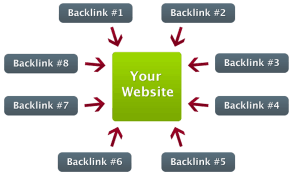Google’s Mixed Messages about Link Building Analyzed
The Truth about the Significance of Links
Link building, right or wrong approach? An everlasting discussion that never seems to end. Partly because of the mixed messages from Google. Google spokespeople are masters at spreading fear (for penalties), uncertainty and doubt. And Google’s webmaster trends analyst, John Mueller, is no exception.
During a Google+ hangout, Mueller stated: “We do use links as a part of our algorithms, but we use lots and lots of other factors, as well.” He continues recommending to not focus on link building because it may do more harm to your website than good. You can hear it yourself in the video below at 55:40.
Because of his statements, many are led to believe that we should avoid link building. But throughout the years, we have learned to analyze Google’s messages properly. Mueller is speaking the truth is saying that Google’s algorithm uses multiple factors, but they are weighted differently. In fact, as Chuck Price mentioned in his article: “only two factors have an additional and independent algorithm dedicated to them, one of those being links (Penguin).”
Since people have learned that link building can get you penalized by Google, many stopped link building altogether. But since links are the highest correlating factor with search rankings, you’ve got to have links if you want to increase your rankings.
Google’s Link Building Recommendations
So how do you get other sites to link to your website and increase your website’s Google ranking? Marcus from SearchEngineLand took the time to look closer at Google’s exact recommendations and analyzed:
- Penguin 4.0 announcement
- Google’s Link Schemes
- Webmaster GuideLines
- Original Penguin announcement
 Mark described the pattern in Google’s recommendations: “create unique, relevant content that can naturally gain popularity in the internet community.” In other words, Google wants you to sit and wait for people to discover your content and find it valuable enough to link to it.
Mark described the pattern in Google’s recommendations: “create unique, relevant content that can naturally gain popularity in the internet community.” In other words, Google wants you to sit and wait for people to discover your content and find it valuable enough to link to it.
But as we know, Google is often too optimistic and tries to convince us that it will all happen by itself, as long as we produce good content. However, creating good content is not enough if nobody knows about it. Create high-quality content and let people know about it. In this order, or you’ll start building links when there is nothing of value to link to.
Google’s Mixed Message On Link Building
So why are Google’s webmasters so ‘mysterious’ about link building? You have to know that there are only two types of links: those that comply with Google Webmaster Guidelines and links that don’t.
So when Mueller says link building is tricky, it’s because of some common link building schemes.
In short, these schemes are mostly about paying or exchanging goods or services for links or posts that contain links. And using automated programs or services to create links to your site. This is akin to spam on steroids. Google will recognize this. For example, if you have a basic website with just four pages but 5.000 links, it will raise suspicion. Why would people cite that website so often if it has only four pages of content?
Unnatural links – links on a page that the site’s owner did not editorially publish or vouch for – is most cases considered a violation of Google guidelines. SearchEngineLand summed up a few typical examples:
- Text advertisements that pass PageRank
- Advertorials or native advertising in exchange for payment for articles containing links that pass PageRank
- Optimized anchor text links shared in posts and news articles, shared on various sites
- Low-quality directory or bookmark site links
- Widgets containing keyword-rich, hidden or low-quality links, spread across various sites
- Comments on forums containing optimized links
Here are some great link building tactics that you can utilize instead.
 Page1.me
Page1.me